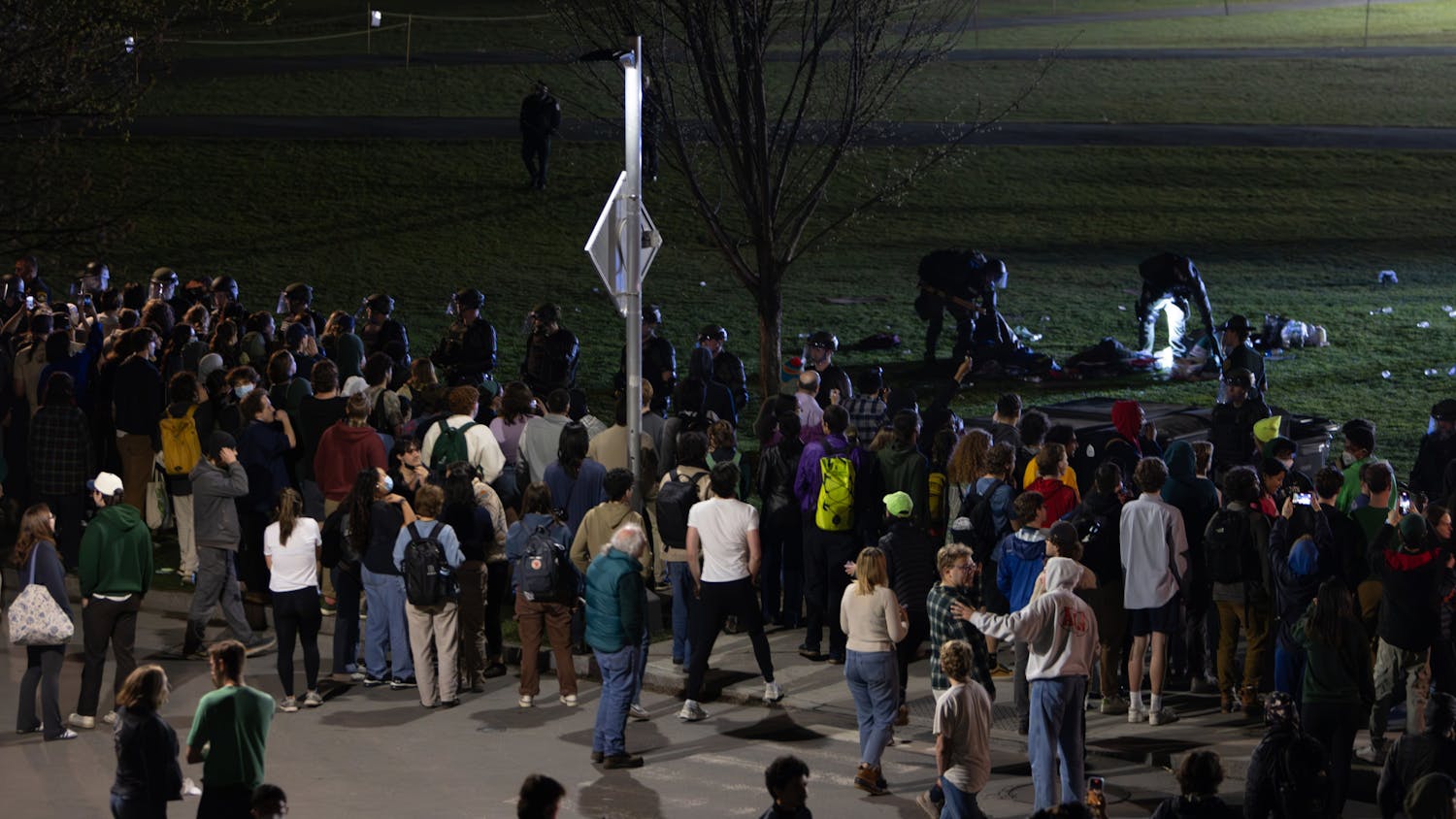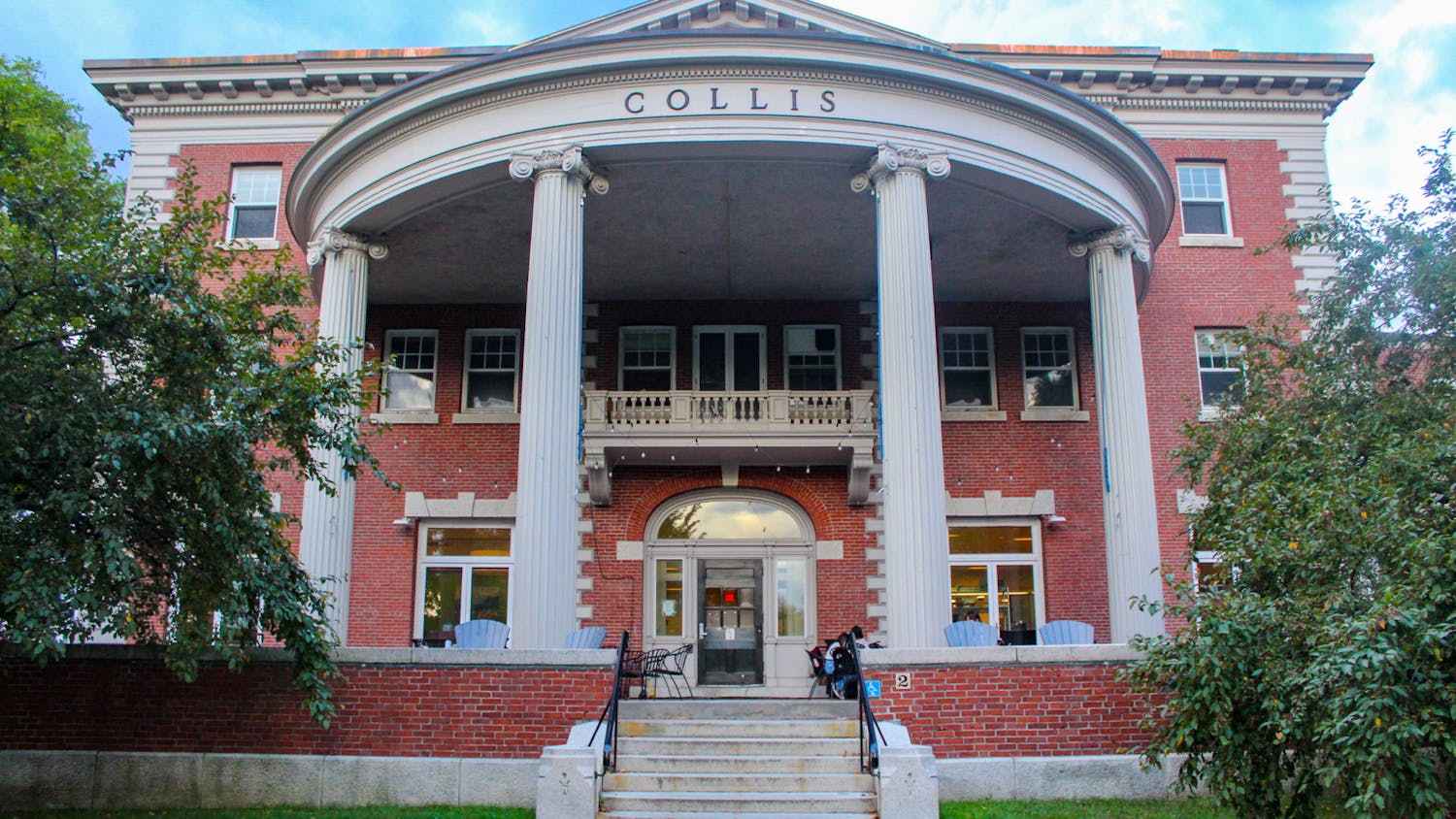In a lecture Tuesday, Prendergast, a human rights activist and best-selling author, discussed the lessons he learned from his experience working in the White House during the peace processes for the Eritrean-Ethiopian war and the war between Sudan and South Sudan.
Prendergast characterized these lessons as "10 building blocks for making a difference."
Most of his initiatives would not have been possible without the help of others especially during his time in a Darfur refugee camp so assembling a good team, his first block, is essential, Prendergast said.
It is also important to recognize the power of social movement, especially those led by students.
"From the civil rights movement to the environmental movement, the social movements in America shifted history quite dramatically," he said. "Student movements can work to protect the rights and dignity of people on the other side of the world."
Innovation, his third block, stems from Prendergast's belief that innovation can prevent future catastrophes, including genocide. He cited the Satellite Sentinel Project, which uses satellites to monitor activity in potentially dangerous regions and can notify nongovernmental organizations or spread awareness of instability, as an example.
Prendergast said he hopes to visit as many schools as possible to share his stories and knowledge.
"There exist many ways for us to pass our thoughts and ideas to the next generation such as tutoring [and] mentoring," he said.
Harnessing celebrities' social cachet can help raise awareness of social issues, Prendergast said, referring to a time when actress Angelina Jolie joined him on a trip to Africa.
"If there are celebrities with integrity and genuine care for particular issues or causes, it's always a good idea to engage them to raise the awareness of those issues." he said.
The next two blocks, "finding the bright spot" and "finding the human face in causes you fight for," emphasized the importance of connecting faces with causes, causes with solutions and solutions with simple actions.
"People want to know who the heck you are helping," he said.
The importance of faith-based groups, which have a strong presence in social initiatives, should not be overlooked, Prendergast said.
Prendergast's last two blocks emphasized placing focus on one's family and embracing one's sense of adventure.
"[You] have to have dreams and sometimes bet heavily [on them]," he said. "I have been fired before and failed in the movements that I started, but I learned a lot from my own failure."
Prendergast emphasized that "choosing to try" is the very first step in making a difference. He urged people to go through their "personal inventories" to look for the skills and connections that they might be able to offer the causes they care about.
"With the internet and various social networking sites, one can be readily involved and become a member of a group that works for a particular cause," he said.
Alexander Lopez '15 works at the Dickey Center and spoke with Prendergast.
"I'm interested in social changing movements and wanted to learn more about details of his career path and passion," he said. "I was also curious to find out Prendergast's transitions from earlier public campaigns to engagement in larger scale issues such as genocide."
Ana Marija Pongrac '15 said the lecture was inspiring and solidified her passion for global health.
"I was impressed with his humble and genuine demeanor," she said.
Prendergast's lecture, "Make a Difference! 10 Ways to Change the World," was the annual Rabbi Marshall Meyer Social Justice Lecture, sponsored by the Dickey Center and the Tucker Foundation in commemoration of the late Rabbi Marshall Meyer '52, who founded Seminario Rabinico Latinoamerica, a conservative Jewish school in Latin America. The lecture was held in Filene Auditorium in Moore Hall on Tuesday.




